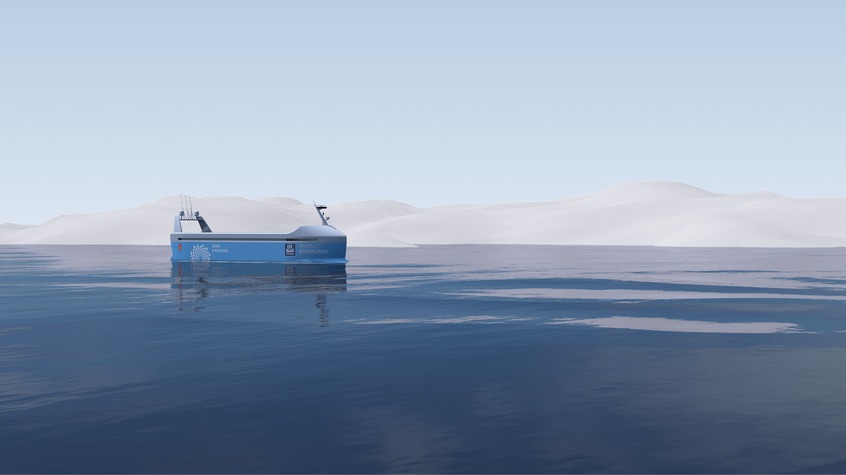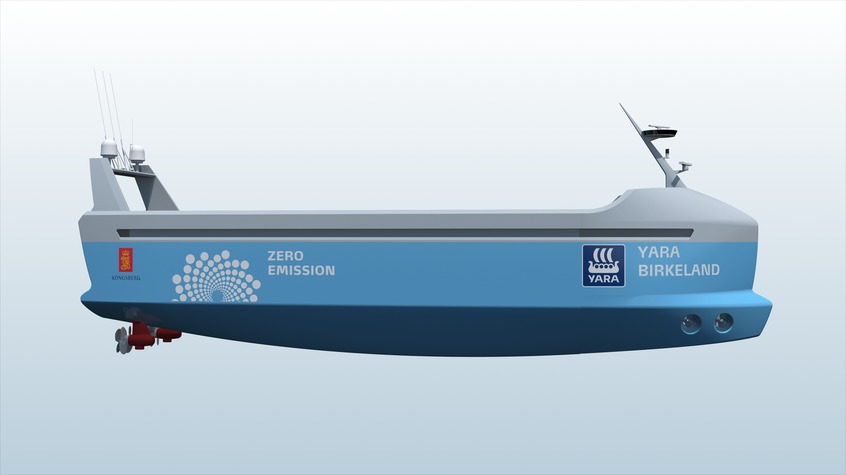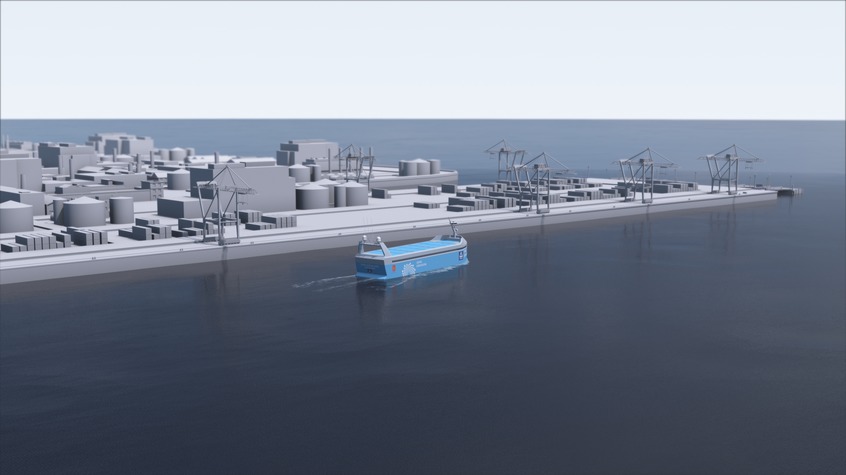A vessel called the Yara Birkeland, built by two Norwegian firms, will be the world’s first fully electric autonomous container ship.
The battery-driven carrier was created by technology group Kongsberg and fertiliser specialist Yara. It will initially be operated as a manned vessel before moving to remote operations in 2019 and performing fully autonomous operations from 2020.

If all goes according to plan, it will begin shipping products the 30km or so from Yara’s production plant at Porsgrunn, near Oslo, to the Norwegian ports of Brevik and Larvik in the latter half of 2018.
The ship is named after Yara’s founder, Kristian Birkeland.

Kongsberg is responsible for the development and delivery of the enabling technologies on the ship, including the sensors and software required for remote and autonomous operations, in addition to the electric drive, battery and propulsion control systems.
Svein Tore Holsether, Yara’s president, said: “Every day, more than 100 diesel truck journeys are needed to transport products from Yara’s Porsgrunn plant to ports in Brevik and Larvik where we ship products to customers around the world.

“With this vessel we move transport from road to sea and thereby reduce noise and dust emissions, improve the safety of local roads, and reduce emissions.”
Images courtesy of Kongsberg
Comments
Comments are closed.











Good for economy. Good for company. Good for environment. Bad for 100 truck drivers laid off. Need serious discussion and action to off-set the negatives of automation while keeping the positives.
The plan is for no fossil fuel vehicles at all by 2030??
They have to be using a huge zero point perpetual motion motor to power an equally huge generator which in turn will continually top up the battery bank’s to supply ongoing power to the motors to drive the ship and all the computers ,radar and remote radio control systems!?? However it appears that it has no cargo hatches to protect the marine containers during adverse stormy sea conditions! The crow’s nest bridge and its position seems highly precarious especially in a North Sea Storm!! Crew-less ,remote radio control? So what do they do should if any one or goodness knows how many mall-functions arise with no one on board to do the fault finding and repair work to restore normal operational function to the ship again not to mention the whole harbor docking and tying up procedure???! Or is it a toy?
very interesting, and no doubt the future. I will be very interested to see how maritime law deals with pilotage & berthing. Who is in charge, the remote Captain? It will have similar issues to driver-less cars. What happens when one of them has a collision.
Why do companies keep trying to design humans out of the equation? We don’t want driverless cars. We don’t want driverless trains. We don’t want guardless trains and we don’t want crewless vessels. How about designing greed and profit out of our societies instead.